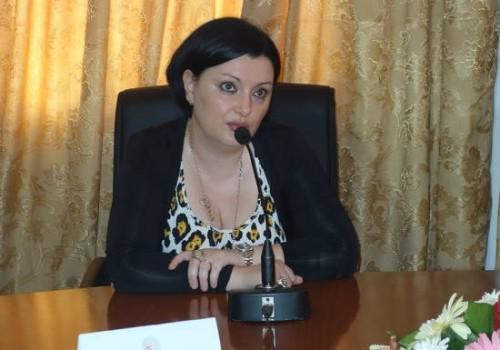
JUST IN: EU launches €9m energy projects in Nigeria
The EU has unveiled two new initiatives worth €9 million in Nigeria's energy sector as part of its ongoing commitment to help the Federal Government provide everyone with access to clean, cheap, and sustainable energy.
In a joint workshop with the Federal Government and the United Nations Industrial Development Organisation, the EU revealed this on Tuesday in Abuja.
During the same year, the World Bank said that South Africa, which has a population of over 60 million, boasted of 3,566 kilowatt-hours of energy consumption per capita, while countries with populations over 200 million consumed 147 kilowatt-hours of electricity per capita.
The Central Bank of Nigeria reports that, despite ongoing challenges with low power generation and inadequate distribution infrastructure, the nation's average hourly statistics was at 3,689.700 MWh in September 2023.
In light of this, the partnership was formed to address the unsatisfactory state of the nation's energy supply.
The projects, Advancing Nigeria's Green and Just Transition to Net Zero through Circular Economy Practices and Small Hydro Power Development for Agro-industry Use in Nigeria, seek to address pollution and climate change by improving energy accessibility and advancing circular economy practices.
Supporting Nigeria's Green Transition to Net Zero via Circular Economy Practices is a three-year project with a budget of €4 million, in contrast to the three-year, €5 million SHP-DAIN project. The EU stated that both projects will be carried out by the United Nations Industrial Development Organisation.
These initiatives are a component of the EU Global Gateway Strategy, a revolutionary effort to improve connectivity, encourage economic growth, and advance sustainability via cooperation.
Nigeria's sincere desire to shift to a more ecologically conscious and sustainable future is being pushed closer by these programmes, particularly the country's efforts to decarbonise its economy and reach net zero emissions by 2060.
The EU Ambassador to Nigeria and ECOWAS, Ms. Samuela Isopi, spoke at the projects' official launch in Abuja. She outlined how the SHP-DAIN project would increase the amount of small hydropower that Nigeria uses in its overall energy mix, which would boost livelihoods, increase productivity along the agricultural value chains and other businesses, and promote food security and decent work.
According to her, "through customised training(s) and knowledge management, the SHP-DAIN will support capacity strengthening of major actors from the finance, government, and private sectors with regard to the specifics of small hydropower and target Micro, Small, and Medium Enterprises sectors."
It will assist with the construction of SHP facilities with a combined 2 MW of capacity for agri-industrial use throughout Nigeria's six geopolitical zones.
"With cross-cutting activities for ensuring sustainability, which include awareness development, visibility promotion, implementation of gender strategies, project management, and monitoring, it will support the development of policy and institutional framework on Renewable Energy for productive uses to streamline policies/incentive schemes towards a greater use of SHP."
As to her statement, the initiative titled "Advancing Nigeria's Green and Just Transition to Net Zero through Circular Economy Practices" endeavours to enhance the handling of utilised off-grid energy equipment and plastics by employing circular economy methods, hence reducing pollution and greenhouse gas emissions.
Isopi went on to say that the new initiative would support the development of enabling institutions at the federal and state levels, as well as the strengthening of policy and regulatory frameworks promoting the concepts and practices of the circular economy, the management of used energy equipment, and the capacity for related implementation.
"With cross-cutting activities for ensuring sustainability, which includes awareness development, visibility promotion, implementation of gender strategies, project management and monitoring, it will support the strengthening of the private sector by developing business models to support SME-led circular economy practices, including reusing and recycling of used equipment in the energy sector," she continued.
She went on to say that the project's success depends on the involvement of the business sector.
When formally unveiling the initiatives, Power Minister Adelabu Adebayo expressed optimism that they will improve agricultural productivity and livelihoods in addition to improving the management of spent plastics and off-grid energy equipment.
In addition, he established Project Steering Committees to guarantee the programmes' success.





